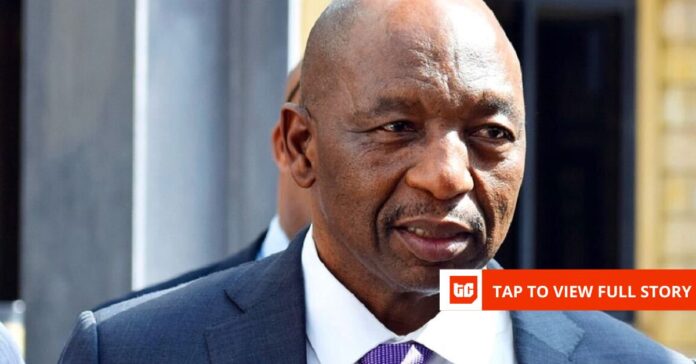While Lesotho breathes relief with the 90 day pause in the 50% sweeping Tariffs, the highest in Africa, the country’s Prime Minister, Samuel Matekane wants his government to remove obstacles to US investment, which includes Elon Musk’s Starlink.
At a Third Public-Private Dialogue National Conference in Maseru on April 9, Matekane described Starlink’s license as part of an overall effort to attract U.S. investments. Critics argue, however, that the tariffs have nothing to do with Starlink, and that opposition towards the company is a result of its 100% foreign ownership which raises national interest concerns. They urged the Government to address the issue in a transparent manner, and not link it to the tariff discussion.
Lesotho Communications Authority confirmed that it received Starlink’s request for a network service license in February. During public consultations, however, the bid was met with strong local opposition. Vodacom Lesotho, Section Two and other stakeholders argue that Starlink must first establish local ownership before it can be approved. They cited existing telecom players such as Econet Telecom Lesotho or Vodacom Lesotho as examples of how foreign investment can coexist with national interests by local ownership.
Approving Starlink’s licence as a possible sweetener for Trump tariffs could strain Lesotho diplomatic relations with South Africa. South Africa rejected Starlink application due to similar concerns about foreign ownership. This decision could also intensify the competition for South Africa’s Vodacom. Vodacom Lesotho is owned by Lesotho’s government and holds 80% of the company.
While giving market access to U.S. firms like Starlink may improve diplomatic and commercial relations, it is not guaranteed that tariffs will be reduced. Goodwill may not be enough to influence trade negotiations. They are influenced by economic and political factors.
Mokhethi Shelile, Lesotho’s Trade, Industry, and Business Development minister, expressed skepticism regarding the 90-day reprieve In an interview conducted by South Africa’s public radio, SABC.
He said, “I don’t know what will happen after 90-days.” “It is said that this is done so we can sit down to negotiate.” I have had a bad experience trying to get meetings set up with the Trump Administration.
Lesotho, with its $2 billion GDP, is heavily reliant on exports. Textiles are a major contributor to the economy, with brands like Levi’s and Calvin Klein exporting goods to the U.S. under the African Growth and Opportunity Act. Lesotho exports $8 million to the U.S., but receives $240 millions in goods each year.
The proposed 50% tariff on Lesotho exports threatens the jobs of 12,000 workers in the AGOA-supported factory. Lesotho is still primarily dependent on South Africa for trade, despite the importance of the U.S.


